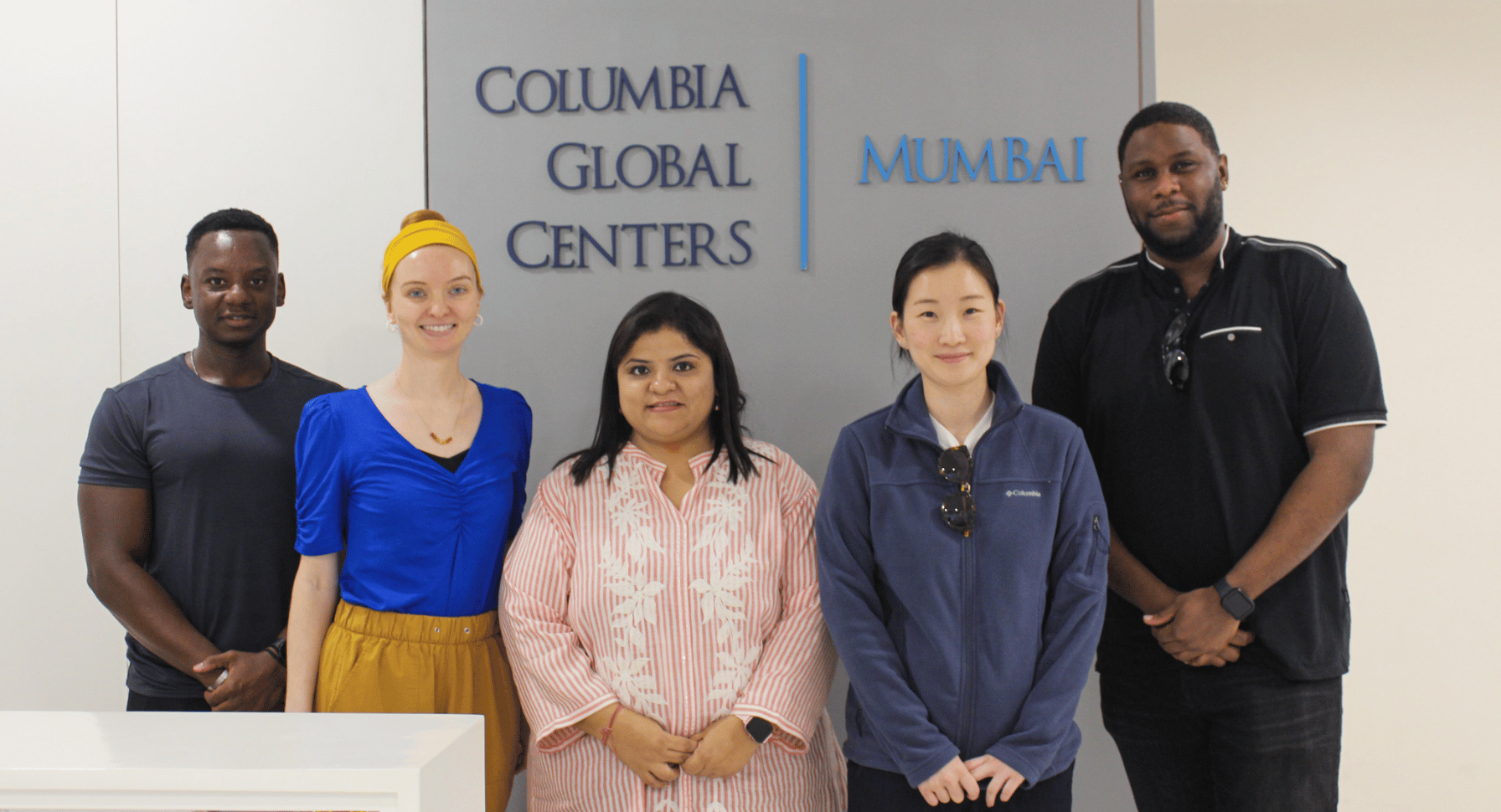Nursing Students Explore India's Public Health Landscape: Challenges and Practices

India, as the world's second-most populous nation and one of the fastest-growing economies, has made significant progress in the health outcomes of its population. Despite successful efforts in polio eradication and HIV/AIDS containment, the country’s healthcare system faces ongoing challenges, particularly with the rise of non-communicable diseases, which now contribute to over half of the disease burden.
Persistent government underfunding and a heavy reliance on private healthcare services have led to a steep increase in medical expenses. As a result, households shoulder nearly two-thirds of these costs out-of-pocket, pushing millions into poverty each year.
As part of Global Clinical Experiences Program, Columbia Global Center Mumbai organized an orientation session for nursing students embarking on a six-week-long practicum at Bel-Air Hospital in Panchgani. Each year, the Columbia School of Nursing provides students with global opportunities to experience challenging health systems and gain a broader understanding of innovative patient care models for infectious diseases. This year’s orientation session featured two distinguished speakers: Dr. Nerges Mistry, Director, The Foundation for Medical Research and Prof. Pooja Jayan Nair, Lecturer, P.D. Hinduja National Hospital, College of Nursing, Mumbai.
Addressing the critical shortage of healthcare providers, particularly in rural and tribal areas, the discussion highlighted initiatives such as Asha workers (community health workers) and auxiliary nurse midwives, who serve as crucial pillars of the community health workforce. Despite strengthening the healthcare personnel, substantial gaps persist, exacerbated by absenteeism and inadequate funding.
Delivering a lecture on the ‘Public Health Challenges in India’, Dr. Mistry spoke about the persistent imbalance in doctor distribution and the prevailing trend of specialization. "Efforts are needed to integrate medical care with technology, enhance preventive and promotive healthcare, and address human resource and technical gaps, particularly in underserved areas," explained Dr. Mistry during her lecture on the ‘Public Health Challenges in India’. "Despite decades of discussion, there remains a critical need to define the roles of various healthcare professionals, including paramedics and physicians."
Talking about the challenges and practices of dealing with infectious diseases, Prof. Nair stressed the need for synergy across various sectors such as education, agriculture, health, politics, and technology to establish a comprehensive and robust healthcare system to tackle challenges specifically of infectious disease. “An integrated approach enables effective trend analysis, facilitating proactive communication with neighboring communities and stakeholders. Ultimately, it equips us with the capability to navigate through health challenges with greater efficiency and effectiveness,” explained Nair.
The session concluded with an interaction between the speakers and the students. Jeeyeon Kang, who is pursuing the Master’s Direct Entry Program at CUSON, inquired about the support systems existing in India to address nursing burnout. Nurse burnout is a significant issue in the US, where unions are established to aid nurses' well-being.
“To tackle this (nurse burnout), certain resilience-building and self-care training programs have been introduced by top-level nurses and higher management,” said Nair. “In India, only a few private hospitals have relatively strong unions supporting nurses and they only account for 20% to 30% and are not uniformly robust.”
Spotlighting issues ranging from healthcare workforce shortages to infectious disease management, this year’s orientation underscored the urgent need for integrated approaches and systems to ensure the well-being of all individuals. Public health is the lens through which all technology and anthropogenic activities need to be looked at to provide comprehensive global health for all, concluded Dr. Mistry.